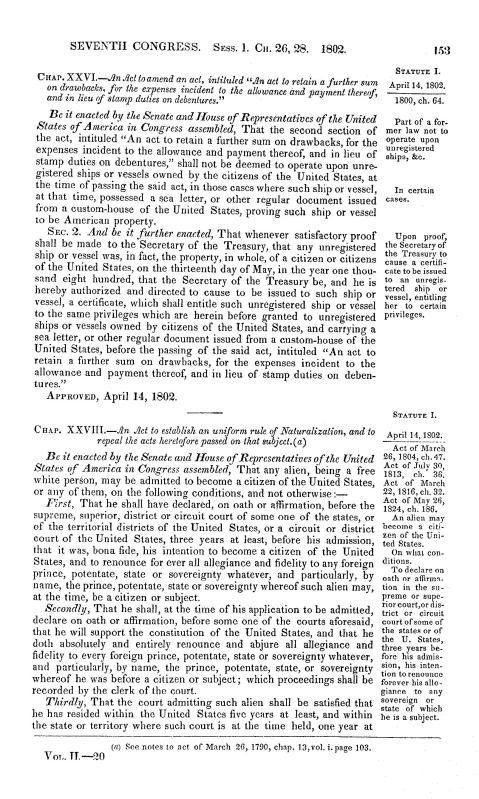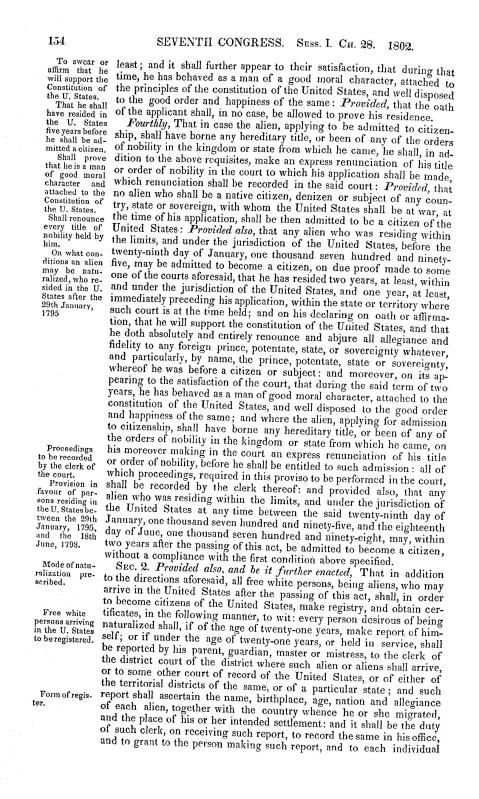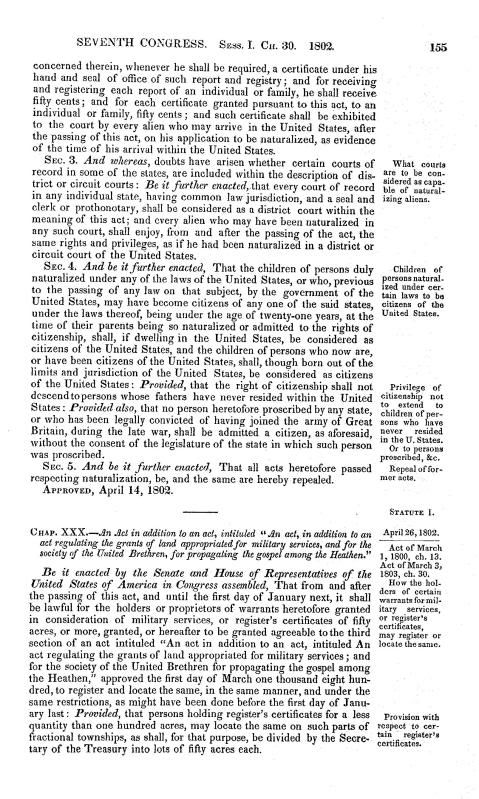Real0ne
Posts: 21189
Joined: 10/25/2004
Status: offline

|
quote:
ORIGINAL: DaNewAgeViking
quote:
ORIGINAL: Real0ne
you are hereby declared winner by impasse! LMAO Of course you have lots of law to back up those unfounded statements dont you. at least you didnt deny daddy is a brit which also disqualifies him, I wont tell if you dont! LMAO
Yeah, that Rule of Law thing is a bitch, ain't it? BTW, you haven't answered my question: what will you do when your pipe-dream of Obama going down in flames gets blown away by a cold, hard dose of reality? I'm not afraid to tell. How about you?

well I dont need you, ohaha, clinton or the dubyas et al to remind me we have a syndicated criminal organization that are calling themselves government.
I am not so sure I would want to be in your shoes cheerleading insurrection and treason against the Organic laws of the United States.
Thats right, I have shown that he cannot be eligible under any US laws, and I can show you the same under brit law.
I am only the messenger, if you do not like the law then change it.
The jurist, Volume 8, Part 2, By Great Britain. Courts, Great Britain
Upon the question, whether a particular individual is an alien, some difficulties may arise upon matters both of law and fact. At the common law, an alien was defined to be, one not born within the "ligeance" of the monarch reigning in England at the time of his birth, and of parents then in obedience to the monarch, [Daddy is a Brit! nah nah neener neener!] including persons born on the British seas or in countries for the time being subject to the dominion of the individual reigning in England, (as Scotland was after the accession of James 6 to the English crown, and as Hanover was during the reigns of the descendants of tho Princess Sophia, who preceded her present Majesty); including also the children born abroad of English ambassadors, and of English subjects being in hostile occupation of an enemy's country, and all persons subjects of a state or country ceded to or conquered by and annexed to this country subsequently to their birth ; but excluding persons born, within the royal dominions, o^ parents at enmity with the sovereign, and persons born in foreign countries prior to their annexation to tho personal dominion of the sovereign, as distinguished from an annexation to the Croicn of this country. (Bac. Abr., Aliens (A); Calvin's Case, 7 Rep. 1; Vaugh. 279; Cowp. 204: Jephson v. Riera, 3 Knapp, 130).
With the exceptions that have been mentioned, children of Englishmen born abroad were held to be aliens, until the stat. 25 Ed. 3, declared that the King's children, wherever born, ought to inherit, and that all children, inheritors, who should be born without the ligeance of the king, of fathers and mothers of the faith and allegiance of the king, should have the same benefits and advantages to have and bear the inheritance within the same ligeance as other inheritors ; " so always that ' the mothers of such children do pass the sea by the license and wills of their husbands." As this statute extended to lands held in capite, and as that tenure involved the obligation of fealty, there is ground for contending that the statute invests the children so born not only with the privilege of inheriting land, but also with the full character of subjects. (See 4 T. R. 308).
The stat. 7 Anne, c. 5, s. 3, goes farther, and enacts that "the children of all natural born subjects born out ' of the ligeance of her Majesty, her heirs and successors, shall be deemed, adjudged, and taken to be natural born subjects of this kingdom to all intents, constructions, and purposes whatsoever;" an enactment which was explained, by the stat. 4 Geo. 2, c. 21, to extend to all children born out of the ligeance who so father shall be a natural born subject, with certain exceptions. Taking these two acts together, it should seem, that, a Frenchman whose father was a natural born subject of England being himself a natural born subject, his son bom abroad, and therefore the son of that son born abroad, and so on in the male line ad infinitum, must all be natural born subjects. And the opinions of able lawyers have been equally divided on the point; although the Earl of Atlilone, seventh in descent from Godart de Ginckell, created by King William iu March, 1691-2, Earl of Athlonc, was, in 1795, more than a century after the family had left these kingdoms to reside in Holland, admitted by the Irish House of Peers to be a natural bom subject of the British Grown. (Report on Aliens, 2d June, 1843, Hansard, 218). The consequence of a different construction would be, that the persons made natural born subjects by the statute of Anne could not be such subjects for all purposes but, for the purpose of transmitting their status to their children born abroad, by virtue of the statute of Edward 3, or the statute of Anne, would want those privileges which all other subjects have ; whereas Lord Bacon says, " there be but two conditions, native and 'alien; nam tertium penitus ignoramus." (But see 2 B. & C. 779). However, this absurd construction has been sanctioned by the Legislature, which, in the preamble to the stat. 13 Geo. 3, c. 21, recited that there was no provision to extend further than to the children of natural born subjects, and proceeded to enact that the children of fathers, who, by the operation of the prior statutes, were natural born subjects, should also be deemed to be natural born subjects. In this state of doubt the question remains. If the doctrine of Lord Kenyon in Doe d.Duroure v. Jones (4T.R. 309) can be supported, the stat. 13 Geo. 3, c. 21, is an authoritative and conclusive determination of the point.
When a foreign country is conquered, the status of its inhabitants is seldom left to implication. The Crown has authority to impose any terms and any laws upon the inhabitants, as the price, so the authorities tell us, of their lives; although the constitution and laws so settled cannot be altered without the assent of Parliamentt. It is usual by the articles of capitulation to acknowledge the inhabitants as British subjects, on condition of their taking the oath of allegiance, and to permit them to dispose of their lands, provided it be to British subjects. Persons born in a foreign country temporarily annexed to the crown of Great Britain do not become aliens on the separation of that country from the Crown, (Dyer, 224a ; 7 Rep. 19); and there does not seem to be any foundation for a distinction in this respect between subjects born and persons who become subjects after their birth. The statute 4 Geo. 2, c. 21, however, for its own purposes, recognises the possibility of a natural born subject's putting off his character as subject; for it enacts, that the children of "fathers natural born subjects of the crown of Great Britain at the time of the birth of their children," shall be deemed natural born subjects ; and, accordingly, it has been held that the child, born in the United States of America, after the recognition of their independence, of a father who was previously a subject of Great Britain, but remained in America and adhered to the government of the United States, was an alien. (Docd. Thomas v. Acklam, 2 B. & C. 779). But where the father by his acts shewed that he adhered to the British government, although he continued to reside in America, the child was allowed to be a natural born subject of this country. {Auchmuchly v.Mulcaster, 5 B. & C. 771).
The reason of this allowance of the royal prerogative in the first instance, and restriction of it afterwards, is plain. It is the right of every subject to go to any part of the sovereign's dominions, and to remain there subject to the laws and customs he finds established there ; and it is also the right of every Englishman not to have the laws and customs under which he lives altered without the consent of Parliament. (See CampMi T. Hall, LofTt, 655).
The treaty of 1794 with the United States, and the confirmatory statute of 37 Geo. 3, c. 9, s. 24, have placed lands in Great Britain which belonged to citizens of the United States at the time of the separation of the two countries, in the singular position of being disposable, by the owner for the time being, to any person who by the law of the United States may hold land there, or who, by the law of England, may hold land here, and that notwithstanding a war between the two countries. {Sutton v. Sutton, 1 Russ. & M. 663). But it would probably be held, that if once a British subject obtains the absolute ownership of any such lands, they will be for ever discharged from the provisions of the treaty of 1794.
Upon points of the kind we have been considering, and a variety of others relating to the disabilities and privileges of aliens, and the effects of letters of denisation and acts of naturalisation, there are many statutes and much information scattered through the books, but, until the appearance of the work before us, it was impossible to be discovered without much labour and research. In Mr. Hansard's work we believe is to be found a reference to every enactment and every authority on the subject, and the result is generally stated with sufficient accuracy. But though as a compilation the work will probably be found very useful, we cannot carry our praises any further. It is to be regretted that our author did not bestow as much industry and care on the digesting and arranging of his materials as he spent in collecting them ; for a work more defective in arrangement, or more careless and inaccurate in expression, we have seldom seen. The following passage, though perhaps the worst, is by no means the only one which might De selected to justify our censure :—" The propriety of preventing even those aliens who ' have been made denizens, or naturalized, from being ' entitled to have offices of trust under government,
• or of becoming members of Parliament or of the Privy ' Council, seems to have been generally acquiesced in ' up to the present time; and indeed the effect of the ' natural allegiance and the innate feeling which every ' person must have and be.ir to the sovereign in whose ' country and under whose allegiance he was born, ' would, as it is presumed, be some answer to any at' tempt to give such privileges to aliens when made ' denizens or naturalized, as they would not have the ' same tie and influence towards this country as British
* born subjects ; and, consequently, no general naturalization appears to have been attempted to be passed ' since the 5th statute of the 7th year of Queen Anne, ' except perhaps once in the reign of King George II, ' until the last session of Parliament, (1843), when a 'bill for that purpose was introduced by Mr. Hutt, the ' member for Gateshead; but the feeling against a ' general naturalization appears to have prevailed, and ' the bill introduced by Mr. Hutt was, on the 9thof ' March last, negatived without a division, and consequently lost, although, from some of the remarks then ' made, some suggestions were made as to lessening the 'expense of naturalization."
In an Appendix Mr. Hansard prints the short but very able report of the Committee appointed by the House of Commons to inquire into the state of the law respecting aliens.
MEMBERS RETURNED TO SERVE IN PARLIAMENT.— William Ileald Ludlow Bruges, Esq., for the borough of Devizes, in the room of Thomas Henry Sutton Sotheron, Esq., who has accepted the Cbiltern Hundreds. —Thomas Henry Sutton Sotheron, Esq., for the county of Wilts, (Northern Division), in the room of Sir Francis Burdett, Bart., deceased. — Nicholas Maher, Esq., for the county of Tipperary, in the room of Valentine Malier, Esq., deceased.
LIST OF SHERIFFS AND UNDER-SHERIFFS, WITH THEIR DEPUTIES AND AGENTS, FOR 1844.
Bedfordshire—George James Sullivan, Esq.. Leagrave.
Underth., Edward C. Williamson, Esq., Luton.
Dep., G. T. Taylor, 18, Featherstone-tmildings. Berkshire—Edwin Martin Atkins, Esq., Kingstone Lisle.
Underth., Edward Vines, Esq., Reading.
Dept., Abbott, Jenkins, & Abbott, 8, New-inn. Bmeick-upon-Tweed—George Johnstone, Esq., Berwickupon-Tweed.
Underth., Rob. Home, Esq., Berwick-upon-Tweed.
Dep., 3. W. Bromley, 1, South-square, Gray's-inn. Bristol {City of)—Thomas Wadham, Esq., Frenchay House.
Underth., William Ody Hare, Esq., Bristol.
Deps., Bridges & Mason, 23, Red Lion-square. Buckinghamshire—John Barnes, Esq., Chorley Wood.
Underth., James James, Esq., Aylesbury.
Dep., W. Meyrick, 4, Furnival's-inn.
Comb. If Hunt!—Robert Hutchinson Lewin, Esq., March.
Underth., John Lawrence, Esq., St. Ives.
Dep., F. B. Beevor, 5, South-square, Gray's-inn. Canterbury {City of)—Charles Brock, Esq., Canterbury.
Underth., Thomas Wilkinson, Esq., Canterbury.
Dep.,T. Kirk, 10, Symond's-inn.
Cheshire—George Wilbraham, Esq., Delamere House.
T- J x / Charles A. Holland, Esq., Norwich.
Lndershs., j John Hostage, Esq. Act. Und.
Dept., Sharpe, Field, & Jackson, 41, Bedford-row. Chester {City o/)—Thomas Hasley, Esq.. Chester.
Underth., John Finchett Maddock, Esq., Chester.
Dep*.,Philpot&Son,3,Southampton-st., Bloomsbury. CUUJM Ports—His Grace the Duke of Wellington.
Underth., Thomas Pain, Esq., Dover.
Dtps., Waterman, Wright, & Kingsford, 23, Essex-st. Cornwall— Henry Lewis Stephens, Esq., Treganuon Castle, Penzance.
Undersh., Richard Millett, Esq., Penzance.
Dtps., Coode & Browne, 28, Bedford-row. Cumberland—George Harrison, Esq., Linethwaite.
Underth., Wilson Perry, Esq., W hitehaven.
Dep., W. E. Stubbs, 15, Furnival's-inn. Derbyshire—Sir J. R. B. Cave, Bart., Stretton-en-le-Fields.
Underth., William Eaton Mousley, Esq., Derby.
Dept., Gregory & Co., 1, Bedford-row. Devonshire—Henry Cartwright, Esq., Forde House.
Underth., Charles Brutton, Esq., Exeter.
Dep., 3. Clipperton, 17, Bedford-row. Dorsetshire—John Floyer, Esq., West Stafford.
Underth., George Arden, Esq., Weymouth.
Dept., Bridges & Mason, 23, Red Lion-square. Durham—Henry Witham, Esq., Lartington.
Underth., William Emerson Wooler, Esq., Durham.
Dep., H. M. Vane, Carlton-chambers, 12, Regent-st. Essex S. B. Brockett, Esq., Spainshall, in Willingale Spain.
Underth., Joseph James Maberly, Esq., King's-road,
Bedford-row.
Dep., T. W. Nelson, 62, Cheapside.
Exeter {City of)—Benjamin Salter, Esq., Exeter.
Underth., William Kingdon, Esq., Exeter.
Dept., R. G. & H. R. Burfoot, 2, King's Bench-walk. Gloucestershire—Joseph Yorke, Esq., Forthampton-court.
Underth., John Burrup, Esq., Gloucester.
Dept., White, Eyre, & White, 11, Bedford-row. Gloucester {City of)—Charles Posser, Esq., Gloucester.
Underth., Thomas Bailey, Esq., Gloucester.
Dept., Poole & Gamlen, 3, Gray's-inn-square. Hampshire—John Thos. Waddington, Esq., Twyford Lodge, Winchester.
Undersh., Charles Seagrim, Esq., Winchester.
Dejis., Hicks & Braikenridge, 16, Bartlett's-buildings. Hertfordshire—Thos. G. Symonds, Esq., Mynde Park.
Undersh., Nicholas Lanwarne, Esq., Hereford.
Dep., 3. Raw, 5, Furnival's-inn. Hertfordshire—Fred. Cass, Esq., Little Grove, East Barnet.
Undershs., Longmore & Sworder, Hertford.
Dept., Hawkins, Bloxam, & Stocker, 2, New Boswellcourt.
Hunts'Jf Camls.—Robert Hutchinson Lewin, Esq., March.
Undersh., John Lowrence, Esq., St.Jves.
Dep., F. B. Beevor, 5, South-square, Gray's-inn. Kent—Sir Joseph Henry Hawley, Bart., Leybourne Grange.
Undersh., 3. M. Clabon, Esq., Town Mailing, Kent.
Dept., Palmer, France, & Palmer, 24, Bedford-row. Kingston-upon-Hull—J. Petchell, Esq., Kingston-upon-HulL
Undersh., W. E. Stead, Esq., Kingston-upon-Hull.
Dept., Butterfield & France, 5, Gray's-inn-square. Lancashire—John Fowden Hindle, Esq., Woodfold Park, Blackburn.
Undersh., Cristopher Bland Walker, Esq., Preston.
Deps., Milne, Parry, Milne, & Morris, Harcourt-
bnildings, Temple. Leicestershire—Lord Archibald Algernon Henry St. Maor,
Burton-on-the-Wolds.
Undersh., Thomas Cradock, Esq., Loughborough.
Deps., Williamson & Hill, 4, Verulam-buildings,
Gray's-inn.
Lincolnshire—The Hon. Charles Thomas Clifford, Irnham.
Undersh., Henry Williams, Esq., Lincoln.
Deps., Taylor & Collisson, 28, Great James-street,
Bedford-row.
Lincoln {City of)—Gent Huddleston, Esq., Lincoln.
Undersh., Richard Mason, Esq., Lincoln.
Deps., Taylor & Collisson, 28, Great James-street,
Bedford-row.
Lichfield, {City of)—W. Fell, Esq., The Close, Lich6eld.
Undersh., William Greene, Esq., Lichfield.
Deps., Gem, Pooley, & Beisley, 1, Lincoln's-inn-fields.
London {City of), \ John Musgrave, Esq.
Middlesex J Francis Graham Moon, Esq.
fj. Anderton, Esq., 20, New Bridge-st., Undershs., < Blackfriars.
L Benj. Hopkinson, Esq., 4, Red Lion-sq.
{James & Potter, Secondaries' Office, Ba-
singhall-street.
Burchell & Co., Sheriffs' Office, 24, Red
Lion-square.
Monmouthshire—William Jones, Esq., Clytha House.
Undersh., Henry Mostyn, Esq., Usk.
Deps., White, Eyre, & White, 11, Bedford-row.
Newcastle-upon-Tyne—William Cookson, Esq., Newcastle-
upon-Tyne. http://books.google.com/books?pg=PA51&dq=law+of+england+natural+born+subject+male&ei=O7JJT7WVF8SU0QHovfGNDg&id=dkcwAAAAIAAJ&output=text
< Message edited by Real0ne -- 2/25/2012 9:52:23 PM >
_____________________________
"We the Borg" of the us imperialists....resistance is futile
Democracy; The 'People' voted on 'which' amendment?
Yesterdays tinfoil is today's reality!
"No man's life, liberty, or property is safe while the legislature is in session
|

 Profile
Profile











 New Messages
New Messages No New Messages
No New Messages Hot Topic w/ New Messages
Hot Topic w/ New Messages Hot Topic w/o New Messages
Hot Topic w/o New Messages Locked w/ New Messages
Locked w/ New Messages Locked w/o New Messages
Locked w/o New Messages Post New Thread
Post New Thread